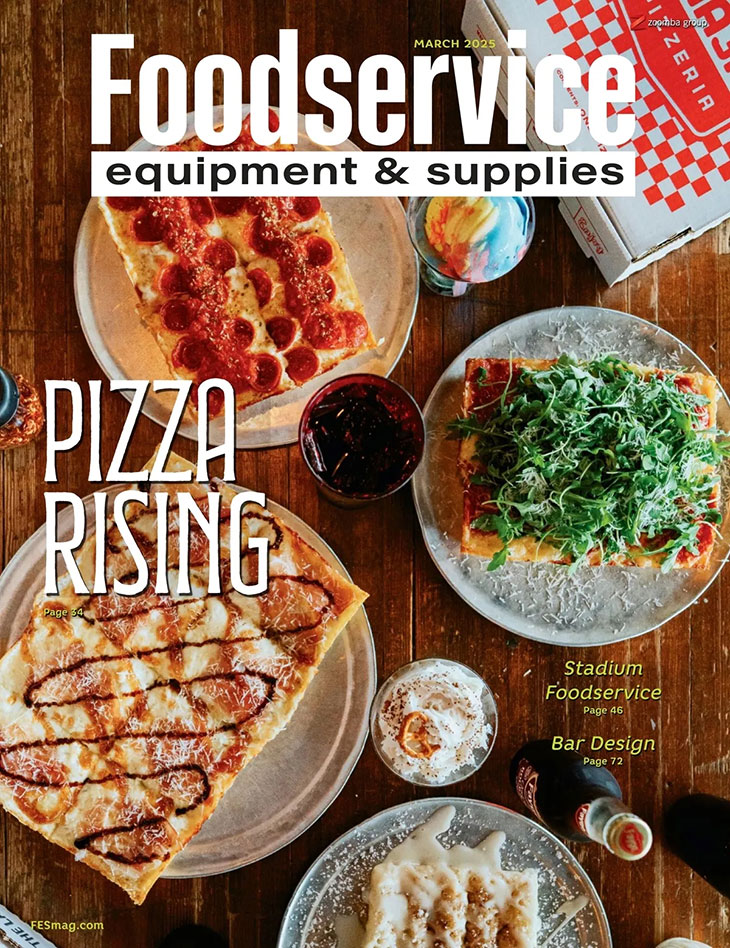As temperatures change, operator behavior and equipment performance can change with it.
For foodservice operators, the change of season can mean more than switching on the heater or swapping in new limited-time offers on the menu. As the weather goes from warm to cold (and vice versa), kitchen equipment performance can change too.
This is most clearly visible on the cold side. Coolers, freezers and ice makers remove heat from the air or water. The higher the ambient temperature, the harder these units have to work, says Jeff Martin, director of service operations southeast for Lancaster, Pa.-based Clark Service Group.
This can cause operators to think a unit is failing when it’s not performing as expected. “Come summertime, it’s super hot in the kitchen. We have people calling for service asking, ‘Why is my ice machine not performing like it does in the winter?’ The heat will affect that every time,” says Martin.
Similarly, the high humidity in the summer can cause condensation on coolers with glass doors. They’ll sweat and drip water in the unit and on the floor. This doesn’t mean the unit is failing; it simply means that some towels and maybe a caution sign are necessary.
Understanding these facts of cold side performance can help eliminate unneeded service calls, but a planned maintenance call at the start of summer can help avoid actual breakdown, Martin adds. Some attention from a trained service agent can help refrigeration units run their best when they’re working their hardest. “Have the coils cleaned, check if the condenser fans are running properly. Make sure the unit is in peak operating condition when it has to work as hard as it can,” Martin says.
Naturally, high heat doesn’t impact cooking equipment nearly as much. Cooking equipment problems related to summer weather usually come about due to operator error. For example, understandably, line cooks want to stay cool, says Martin. Often, they’ll turn on fans in the kitchen. This can cause flames to blow around and go out and even extinguish pilot lights. If an operator notices these problems when the fans go on, the fans should probably go off, or at least be turned down and/or redirected.
A similar problem occurs in the colder months, Martin says. In cooler climates, operators will tape plastic over windows to keep the cold air out. If the hood’s makeup air isn’t heated, kitchen staffers will often turn off the makeup air entirely. This quickly creates a vacuum that impacts the performance of cooking equipment. Flames, seeking air, will literally start floating away from burners, pilot lights will go out and equipment simply won’t heat like it is supposed to. In these cases, a quick demonstration shows the operator the exact problem. “I’ll open the door up and everything starts working right again,” Martin says.
The solution, then, is simply to turn on the make-up air. “All they can do is let it run, let the cold air blow right on them,” Martin says. “It’s supposed to be a balanced system. I’m pulling air out, I need to be letting air in.”
Come winter, operators should also take steps to protect any outdoor equipment. Outdoor ice machines, in particular, need to be serviced ahead of prolonged freezing temperatures, notes Martin. When doing so, clean the unit, turn off the water and completely drain the water from all the lines to prevent pipes outside and even inside equipment from bursting, “otherwise when you try to reopen, you might not have that piece of equipment anymore,” he says.
Clearly, the change of seasons and ambient temperatures can impact how equipment runs and how a kitchen operates. Understanding equipment performance, as well as behaviors that can impact that performance, can keep kitchens running smoothly and avoid unnecessary service calls.



